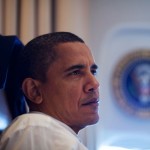Being good at raising money doesn’t make you a good diplomat
 Charles Rivkin is an American ambassador of a peculiar kind. He is not a career diplomat but a political appointee, with no previous professional experience in international relations. However, unlike most of his current and former non-career colleagues, he speaks fluently the language of the county he is posted to — France — and is very well plugged-in when it comes to political and social developments there. He has received rave reviews for his performance in Paris both in official State Department audits and from his embassy’s employees.
Charles Rivkin is an American ambassador of a peculiar kind. He is not a career diplomat but a political appointee, with no previous professional experience in international relations. However, unlike most of his current and former non-career colleagues, he speaks fluently the language of the county he is posted to — France — and is very well plugged-in when it comes to political and social developments there. He has received rave reviews for his performance in Paris both in official State Department audits and from his embassy’s employees.
But it wasn’t Rivkin’s diplomatic skills that landed him the coveted political ambassadorship. Rather, it was his skillful fundraising for President Obama during his 2008 election campaign…



